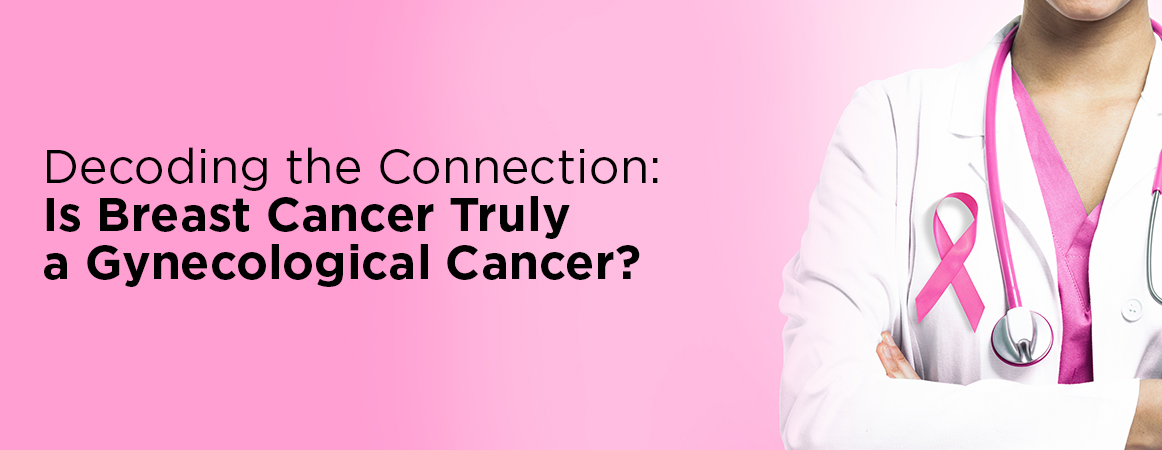Decoding the Connection: Is Breast Cancer Truly a Gynecological Cancer?
Breast cancer is a widely recognized and extensively studied malignancy that affects millions of women worldwide. However, its classification as a gynecological cancer remains a topic of debate and curiosity. Let’s delve into the question whether breast cancer truly belongs in the category of gynecological cancers, exploring the medical, biological, and social dimensions of this classification from the perspective of top gynecologists in Karachi.
Understanding Gynecological Cancers:
When discussing gynecological cancers, the focus often centers on the female reproductive system, including the ovaries, uterus, cervix, and fallopian tubes. These cancers share a common origin in the reproductive organs, and they are typically addressed by gynecologists. However, breast cancer stands apart due to its origin and the unique factors that contribute to its development.
The Biological Link:
Biologically, breast cancer differs from gynecological cancers in terms of its tissue origin. Breast tissue originates from ectodermal tissue, which is distinct from the mesodermal origin of the reproductive organs. While this biological distinction challenges the classification of breast cancer as a gynecological cancer, there are interconnected aspects that warrant consideration.
Hormonal Influence:
Hormones play a significant role in both breast cancer and gynecological cancers. Estrogen, a hormone primarily associated with the female reproductive system, can contribute to the development and growth of breast cancer. Similarly, hormonal imbalances are implicated in gynecological cancers such as ovarian and uterine cancer. This shared hormonal influence highlights the complex interplay between various cancers that affect women.
Genetic Factors:
Genetics also come into play when examining the relationship between breast cancer and gynecological cancers. Mutations in genes such as BRCA1 and BRCA2 increase the risk of both breast and ovarian cancers. These genetic links emphasize the importance of comprehensive medical care that considers the shared genetic predisposition across different types of cancers.
Diagnostic Approaches and Overlaps:
Diagnosing breast cancer and gynecological cancers often involves distinct procedures and tests. Mammograms, ultrasounds, and biopsies are primary methods for detecting breast cancer, while Pap smears and pelvic exams are essential for identifying gynecological cancers. Despite these differences, there can be diagnostic overlaps, underscoring the intricacies of classifying breast cancer within the realm of gynecology.
Treatment Strategies:
Treatment strategies for breast cancer and gynecological cancers share commonalities and differences. Surgical interventions, chemotherapy, radiation therapy, and targeted therapies are utilized for both types of cancers. The availability of such treatments emphasizes the need for a multidisciplinary approach that bridges the gap between oncology and gynecology.
The Role of Best Gynecologist Hospitals in Karachi:
Renowned for its advanced medical facilities, the presence of MMI gynecologist hospital in Karachi plays a crucial role in women’s healthcare. While breast cancer’s classification within gynecological cancers might be debated, Memon Medical Institute and Hospital understands the nuanced connections between various cancers affecting women. Through their expertise and integrated care, they offer comprehensive solutions that address the complexities of breast cancer alongside other gynecological concerns.
Gynecologist specialists in Karachi: Navigating Complexity:
Navigating the intricate landscape of breast cancer and gynecological cancers requires the expertise of top gynecologists in Karachi. These medical professionals possess a deep understanding of the evolving medical field, making them adept at diagnosing, treating, and guiding patients through the challenges posed by these cancers. Their comprehensive approach ensures that patients receive the highest quality care, encompassing the broader spectrum of women’s health.
Conclusion:
While the classification of breast cancer as a gynecological cancer may spark discussions, it is essential to appreciate the complexities that underlie this categorization. The shared hormonal influences, genetic links, and treatment strategies underscore the intricate connections between various cancers that impact women’s health. As advancements continue to reshape the medical landscape, the collaborative efforts of the best gynecologist hospitals in Karachi, alongside the guidance of top gynecologists in the city, remain integral in providing holistic care that addresses the diverse needs of individuals facing these challenging diagnoses. Whether breast cancer is fully considered a gynecological cancer or not, the focus on comprehensive women’s health remains paramount.


